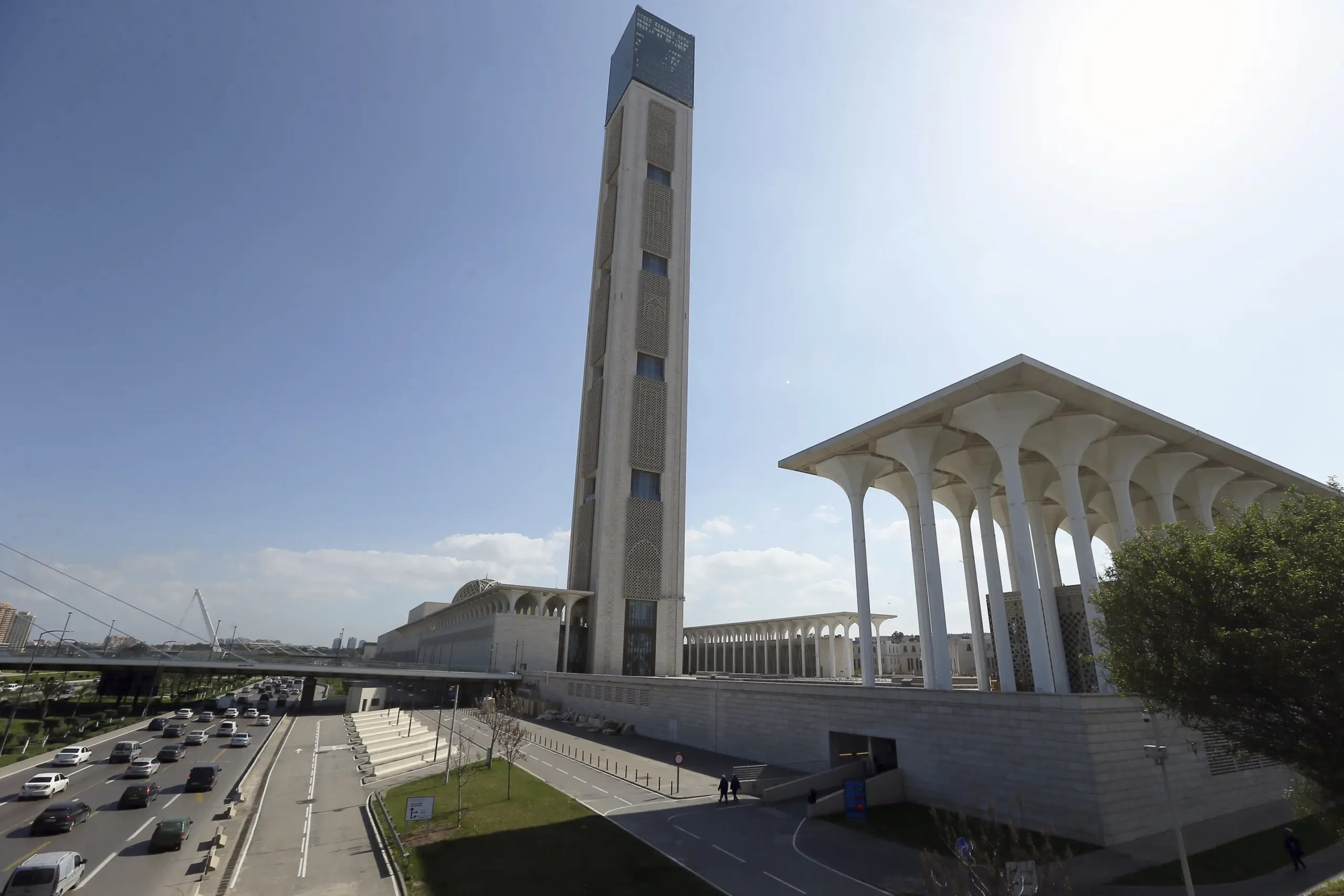Algeria unveiled a monumental mosque along its Mediterranean coast on Sunday, marking the culmination of a project that underwent significant transformations amidst political tumult. Originally conceived as a symbol of state-sponsored strength and religiosity, the Great Mosque of Algiers encountered prolonged delays and cost escalations over the years.
Constructed by a Chinese firm over the course of the 2010s, the mosque boasts the world’s tallest minaret, soaring to a height of 869 feet (265 meters). Ranking as the third-largest mosque globally and the largest beyond Islam’s revered cities, its prayer hall can accommodate a staggering 120,000 worshippers.
Infused with modernist elements while paying homage to Algerian heritage through Arab and North African motifs, the mosque also features amenities such as a helicopter landing pad and a library capable of housing up to 1 million books.
Ali Mohamed Salabi, the General Secretary of the World Union of Muslim Ulemas, highlighted the inauguration as a beacon guiding Muslims toward “goodness and moderation.”
Algeria Opens Africa’s Biggest Mosque Despite Political Delays and Cost Issues (Credits: ABC27)
Algeria has prioritized promoting a moderate interpretation of Islam since quelling an Islamist-led insurgency during the 1990s civil war. President Abdelmajid Tebboune fulfilled his commitment to inaugurate the mosque with grandeur, although the event primarily held ceremonial significance.
Notably, the mosque had been accessible to international tourists and official visitors for approximately five years prior to the inauguration, delayed from an earlier planned ceremony.
The timing of the inauguration ensures that the mosque will be open to the public in time to host nightly prayers during the upcoming Muslim holy month of Ramadan.
Beyond its imposing stature, the mosque has been mired in controversy and delays throughout its seven-year construction period. Concerns were raised regarding the seismic risk of its chosen location, a point disputed by the state. Despite persistent delays and budget overruns, discontent among Algerians persisted, with some expressing a preference for investments in healthcare infrastructure over the lavish mosque.
The official cost of the project amounted to $898 million.
Originally conceived under former President Abdelaziz Bouteflika, the mosque was intended to be Africa’s largest, envisioned as his legacy and potentially named the “Abdelaziz Bouteflika Mosque,” akin to the Hassan II Mosque in Casablanca, Morocco.
However, Bouteflika’s plans were thwarted by the widespread protests of 2019, which led to his resignation after two decades in power, preventing him from realizing his vision of inaugurating the mosque in February 2019 or naming it after himself.
The mosque, along with other major projects like a national highway and a million new housing units, faced allegations of corruption during the Bouteflika era, with suspicions of kickbacks to contractors and involvement of state officials.
